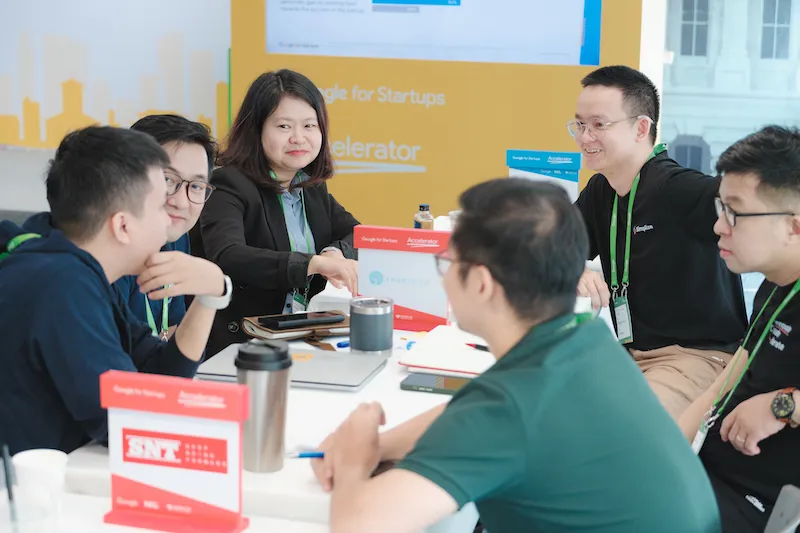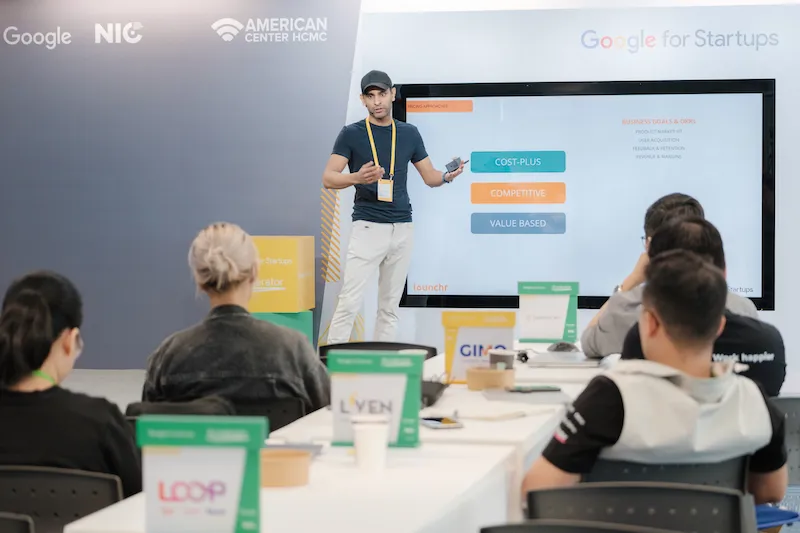Vietnam's business competition fuels demand for AI talent
With supportive government policies, Vietnam is well positioned to seize the opportunities of AI.
Demand for artificial intelligence (AI) talent in Vietnam is soaring, not only among large corporations, but also among smaller companies looking to stay competitive.
Hanoi-based Viettel Al, a subsidiary of the Viettel Group, is looking for AI engineers, offering VND20 million (US$791) a month plus cash bonuses above $2,000 a year.
Similarly, Hanoi-based One Percent JSC offers salaries between VND40 million and VND50 million ($1,581-$1,977) per month, as well as attractive benefits for candidates.
In Ho Chi Minh City, a wave of banks and tech firms are rolling out the red carpet for AI engineers, with salaries ranging from VND20 million to VND25 million ($791-$988). Notable companies include Oryza Systems, VietIS, and Mabuchi Motor Vietnam, all of which are vying for top talent, according to reports from recruitment agencies.
According to Dang Trinh Nha Huong, Southern Regional Director of Navigos Search, banks are prioritizing digital talent to support their extensive digitization efforts. There's a high demand for specialists in core technologies such as AI, big data, and blockchain, but the supply remains tight.
Recommendations for growth
| Young startups attend a training course in Ho Chi Minh City. Photos: Google |
Vietnam is facing a shortage of AI professionals, and local startups are struggling with limited access to top experts and resources needed to develop market-relevant AI products, according to Google's report "AI Opportunities for Vietnam: Some Recommendations."
It added that Vietnam can boost its competitiveness in science and technology through long-term investments in research and development. The country is also promoting innovative public-private partnerships to build AI infrastructure.
“While no single AI investment strategy fits all governments, success hinges on investing in cloud infrastructure, fundamental research, cutting-edge technologies like GPUs and supercomputers, and open government datasets. Policies should then encourage innovation and product development based on these foundations,” the report noted.
This approach can drive innovation leadership by fostering shared responsibility among the public, private, and academic sectors in advancing AI and other emerging technologies, the report said.
To boost AI capabilities, the report suggests prioritizing investments in infrastructure and innovation. This includes increasing AI research and development while improving digital infrastructure and programming skills.
Accordingly, a supportive policy environment will help lower barriers to innovation. Building a skilled workforce is also essential. Investing in human capital at all levels, from students to professionals, will ensure that the workforce can effectively use AI.
Promoting the integration of AI across government and different sectors of the economy is key. This approach will help address critical social and economic challenges and ensure the widespread benefits of this technology.
As Vietnam accelerates its AI ambitions, addressing these gaps will be essential to realizing the full potential of artificial intelligence in the coming years, the report highlighted.
Al influence
| Startups join a recent event jointly hosted by the National Innovation Center and Google. |
AI is having a significant impact on both local businesses and users, transforming lives through its application in key programs. Notable initiatives include the International Road Assessment Program, which uses AI to increase the safety of children on Vietnam's roads.
The International Rice Research Institute (IRRI) is also using AI to develop climate-resilient rice varieties to help farmers adapt to climate change.
In terms of environmental sustainability, the Coffee Vision Project is using AI to monitor deforestation in coffee-growing areas and promote biodiversity.
In addition, Google's Flood Hub, an AI-integrated platform, is helping agricultural centers in Vietnam predict flood risks to minimize economic losses and protect livelihoods.
Major Vietnamese tech firms such as Viettel, FPT, CMC, VNPT, and VinGroup are making significant investments in AI-driven solutions, demonstrating the potential benefits of the technology.
In healthcare, AI diagnostic services are being deployed in hospitals to analyze medical images and data to facilitate early disease detection and reduce healthcare costs. For example, VinDr from Vingroup's Big Data Institute helps doctors diagnose lung, liver, breast and spine diseases with over 90% accuracy in just seconds.
In education, AI-powered learning platforms and virtual tutors are revolutionizing the student experience by providing engaging and personalized learning opportunities. FPT University is actively training teachers to improve the quality of teaching through the use of AI.
These examples offer just a glimpse of the potential of AI, and the Vietnamese government is well aware of its ability to bring even greater benefits to its citizens. The National Strategy for AI Research, Development and Application aims to position Vietnam as an innovation hub in ASEAN and globally by 2030.
Google experts emphasize that attracting investment and fostering innovation in AI will be critical for Vietnam to achieve its goal of a digital economy accounting for 30% of GDP by 2030. With a vibrant startup ecosystem and 20% of the population being tech-savvy youth, Vietnam is well-positioned to capitalize on AI opportunities through supportive government policies.




![[Vietnam – a hub of nurturing tech talent] Strong supporter of Vietnam's tech talent development](https://cdn-media.hanoitimes.vn/2023/08/23/Cover_P5_Tech_talent_HNT.png?w=480&h=320&q=100)







